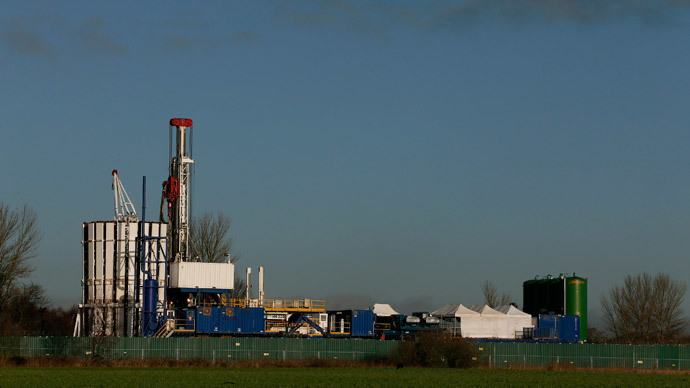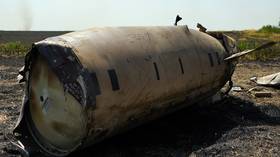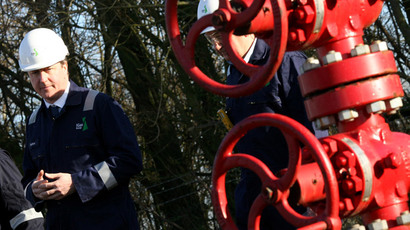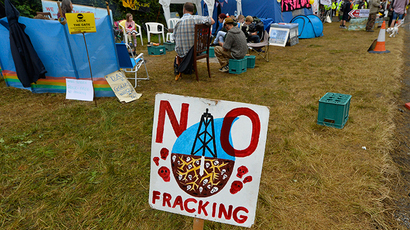Fracking companies could bury ‘any substance’ under homes

A proposed UK amendment to existing European shale gas regulation would allow fracking firms to put “any substance” under people’s properties and leave it there, prompting anger among environmental groups.
The proposed changes to remove the ability of landowners to block fracking will be debated by the House of Lords on Tuesday as part of the Infrastructure Bill, The Guardian reports.
The government said the changes were “vital to kick starting” shale gas exploration.
A spokeswoman for the Department of Energy and Climate Change told the Guardian: “Shale and geothermal have the potential to bolster our energy security, create jobs and growth and provide a bridge to a greener future. These changes are vital to kick starting shale and make sure it’s not delayed by one single landowner.”
The amendment to the law permits “passing any substance through, or putting any substance into, deep-level land” and gives “the right to leave deep-level land in a different condition from [that before] including by leaving any infrastructure or substance in the land,” according to the newspaper.
Campaigners quickly condemned the plans, raising questions as to whether damaging waste products would be deposited underground and what environmental effects such a practice could have.
Simon Clydesdale, a campaigner at Greenpeace UK, told The Guardian the amendment “makes a mockery of the government’s repeated claims about Britain’s world-class fracking regulations.”
“Far from toughening up rules, ministers are bending over backwards to put the interests of shale drillers before the safety of our environment and our climate,” he added.
On the prospect of the proposal being used to bury nuclear waste, the DECC spokeswoman said the amendment gave fracking firms the right to put substances into deep-level land only in the context of exploiting gas and petroleum.
“Operators must demonstrate that where any chemicals are left in the waste frack fluid, this will not lead to pollution of groundwater. The Environment Agency will not permit the use of chemicals where these are hazardous to groundwater,” she said, adding that companies would still have to obtain all the necessary planning and environmental permits.
In September, the Department of Energy and Climate Change (DECC) said it will press ahead with proposals to allow fracking companies to drill under people's land without their agreement.
The nationwide plan would give companies the right to drill 300 meters under private land without having to seek landowners’ permission.
This plan comes despite overwhelming public opposition. In a consultation on the proposal, 99 percent of a total of 40,647 responses opposed the legal changes to give oil and gas companies underground access.
The British government argued that citizens obstructing shale gas drilling on their land led to delays and legal proceedings were expensive and time-consuming.















